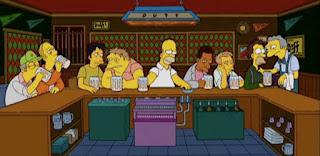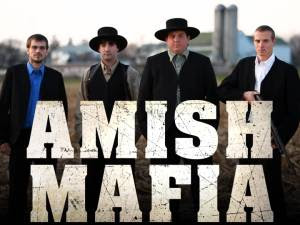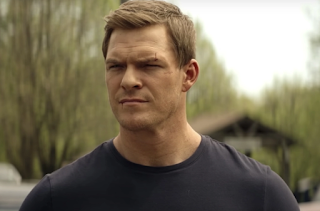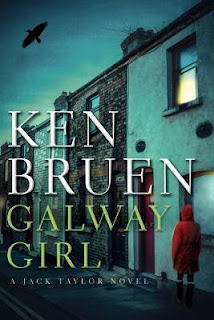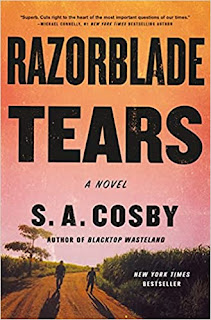 |
| Photo by Shane Leonard |
As I type this, a copy of Holly, the latest Stephen King novel, sits in a TBR stack I keep in my living room. It's a few books down and obviously not the last King book I will read. I've read most of his canon in the order published, segregating the Bachman books at the end. But until You Like It Darker drops next year, I'll have read everything he's published with a few exceptions. Some of the screenplays, some uncollected short stories and novellas. I definitely never read The Plant because King put the kibosh on it when his ebook experiment (pre-Kindle) did not work. I also did not read his book about the Red Sox recent World Series run.
King is an odd choice to occupy his place in American literature. He's an unabashed horror writer who's recently shown a penchant for crime fiction. To his annoyance, some complain when he eschews the supernatural for crime, but the Bachman books show he's just as at home there. In fact, only two Bachman books, Thinner and The Regulators, are overtly supernatural. Rage and Road Work are out-and-out noir, while Blaze, an admitted trunk novel, takes its cues from Of Mice and Men. The Long Walk and The Running Man are both dystopian thrillers with one foot in noir and the other in science fiction. One wonders if this is what they watched on TV in Gilead in A Handmaid's Tale.
Yet horror is King's wheelhouse. Horror is not supposed to produce classic novels. Yet The Stand, The Shining, It... All these are cultural touchstones. They might owe some spiritual strands to HP Lovecraft, but they're hardly Lovecraftian horror. (Well, It is basically Cthulhu in a clown suit chewing scenery and inspiring Bill Skarsgard to channel Tim Curry. Bad example.) But horror is just a canvass for King to paint on.
His real talent is making a fictional place seem real. Castle Rock, or rather Castle County, gets its first mention in Blaze, written before Carrie. You really believe there's an Overlook Hotel (or was), You expect George Bannerman or Alan Pangborn or Norris Ridgewick to answer your 911 call. And we just won't mention Salem's Lot or Derry. By the time of the Gwendy trilogy, Derry is actually more dangerous than the Lot.
I always described King's horror as this. The guy next door who borrowed your mower is Satan. And he's not the problem. He's worried about the weird stuff going on across the street. But the horror takes a backseat to the characters and the story. Jack Torrance in The Stand is already headed over the edge. The ghosts and the isolation of the Overlook just give him a not-so-gentle shove. The Stand takes ordinary people and tosses them into the post-apocalyptic battle between good and evil.
But perhaps his greatest monster is not Pennywise or Leland Gaunt or even Randall Flagg. It has to be Annie Wilkes, the obsessed fan of one writer's work who suddenly has him in her clutches. King actually imagined Annie offing poor Paul Sheldon and feeding him to her pig while she enjoyed his last novel lovingly bound in his skin. If you've read the book or watched the movie, it's almost a surprise that was not how it ended. Annie is that most dangerous creature: The one unaware of their own evil and convinced of the righteousness of their cause.
Next year will be sixty years since Carrie was published. Naturally, there are hits and misses. Cell is a huge misfire, a lightweight Stand that doubles as a rant against cell phones. The Dark Tower Series is uneven until King figures out what he wants it to do (and manages to plug it in to most of his canon.)
King himself has lamented that his best regarded work came early in his career. The Stand and Salem's Lot are cultural touchstones. But listening to my share of rockers, I'm not surprised. There's a certain quality that comes with a lack of inhibition and ignorance of the rules. King will tell a story in a long, rambling style. He'll go off on tangents, but the tangents are stories unto themselves. And the man has an eye and ear for character. In his brilliant nonfiction tome, On Writing, he relates the accident that nearly killed him and may have revitalized his passion for writing. In describing the man who hit him in his minivan, King says, "I was nearly killed by one of my own characters." Years later, as Roland crosses into our world from that of the Dark Tower series, both King and the late Bryan Smith, the driver, do become characters when another character literally comes out of the story to badger the author into finishing. (Methinks the later Dark Tower books were therapy as much as parts of a longer epic.)
The next time I land in this space, I'll either be reading Holly, his latest, or have finished it. But next time, I want to look at King's alter-ego, Richard Bachman.








